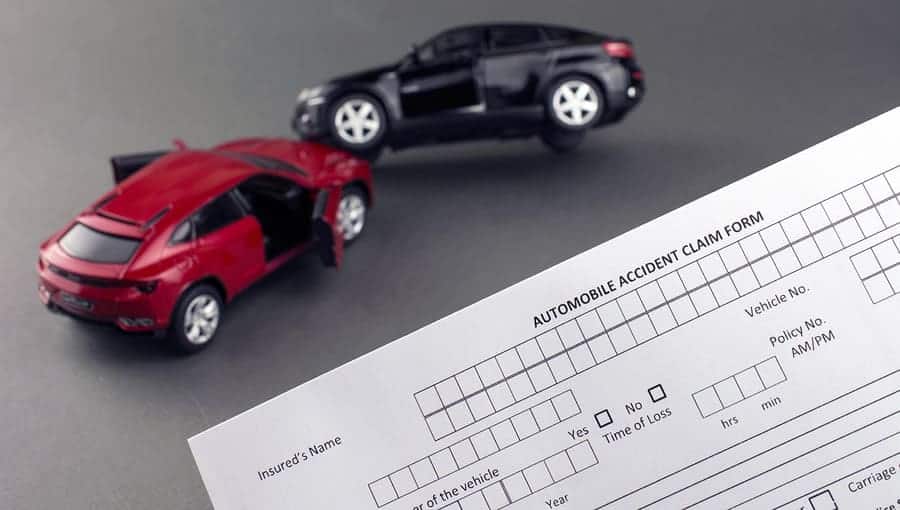Car accidents are highly stressful events. You may be rushed to the ER and your entire world has been turned upside down. After you leave the hospital, you may be overwhelmed with questions about your health, treatments, legal rights, and insurance policy technicalities.
If you have received a car accident settlement or judgment, it is important to understand what you can and cannot deduct, and when you have to pay taxes on a car accident settlement. After all, you are entitled to several different types of compensation after the accident, such as for medical bills, pain and suffering, lost wages and interest accrued on the award. Below is more information. Be sure to talk to a tax professional about your specific settlement or judgment to ensure you are following all applicable tax laws.
The last thing on your mind is probably taxes and deductions related to auto accidents. But these are important subjects that deserve close attention. Tax mistakes and confusion during a car accident settlement can lead to big tax headaches in subsequent years – the last thing you need.

Car Accident Settlement Overview
When you are awarded compensation in a car accident settlement or trial, it is generally not taxable as income. But making general statements about tax consequences from legal settlements is always risky. Some parts of your compensation COULD be taxable. This page provides a general overview of what may and may not be taxable if you’ve received money as a result of a car accident settlement. However, the smart move is to consult with your attorney and/or your CPA when you are about to get a personal injury settlement or verdict to ensure your taxes are paid properly.
Settlements and Judgments – Taxed the Same
The first thing to know is the same state and federal tax rules apply to you whether you win a settlement or judgment. But generally, you have more flexibility to lower your tax burden if the case ends in settlement. If you ever have an IRS audit, you will need to show the agreement for the settlement, your 1099s, checks and complaint. You can affect how the settlement is taxed based upon how you and your CPA handle these items.
Compensation for Physical Injuries and Illnesses – Not Taxed
If you file a car accident claim for physical injuries related to a car accident, your settlement or judgment will not be taxed. But the key is this: You must file a claim or lawsuit for PHYSICAL injuries related to the car accident. If you receive settlement funds for mental anguish or emotional distress unrelated to physical injuries, this is taxable. There was a day when all personal damages were untaxed, but this changed in 1996.
So, if you have mental pain and anguish from a broken leg in a car accident, monies for these damages would not be taxable. But if you had PTSD and no other physical injuries in the accident, monies in this case would be taxable.
Medical Expenses in a Car Accident Settlement – Not Taxed
Money that is paid to you for your medical costs stemming from treatments for your accident injuries are free of taxes. But if you claimed a tax deduction for medical expenses related to the accident, and you are reimbursed later for these medical expenses as part of the case, it is required that you recapture this money and you will need to pay taxes on it because you benefited from the deduction that you took before. If the settlement does not give an amount for medical costs and you took a tax deduction for medical expenses, the settlement is considered a reimbursement for these expenses.
So, the key matter here is the tax deduction. If you did not take the deduction for the medical expenses, then the award is free of tax. If you did benefit from taking a tax deduction, you have to report these amounts on your tax return after you get your settlement. Put simply, you do need to pay Uncle Sam for mental anguish and emotional anguish compensation for your lawsuit or settlement, but payments for your medical expenses are tax free. So, if you need to go to the psychologist to deal with the emotional stress of your accident, any money you receive in compensation will not be taxed.
Money for Pain and Suffering in a Car Accident Settlement – Sometimes Taxed
There always are questions about the compensation you receive for pain and suffering. This is the money that you are being paid to you for your physical suffering. As long as this compensation is for an actual physical injury, it is paid to you free of taxes. But if you are being compensated for mental pain and suffering only that is not related to a physical injury at all, this compensation will be considered taxable as income.
Punitive Damages – Always Taxed
Punitive damages are levied against the defendant to punish them for actions that were reckless and dangerous. The purpose of these damages is to simply punish the defendant. Therefore, punitive damages are not compensation for your injuries and are taxable.
Attorney Fees – Potential Tax Trap
Factor in your personal injury attorney fees when you deal with taxes post-settlement. Most personal injury lawyers receive a contingency fee when the case settles, or a verdict is decided. For tax purposes, you will usually be treated as getting 100% of the settlement, even if the other side has to pay your attorney his 33% fee. If the case is entirely nontaxable, then there are no issues. But if the recovery can be taxed at all, talk to your CPA right away.
What You Can and Cannot Deduct
As noted above, money paid to you for medical costs for your accident treatments are nontaxable. But if you claim a tax deduction for medical expenses related to the accident and you get reimbursed later for these expenses, you must recapture this money and pay taxes on it.
The key here is the tax deduction. If you did not take a medical expenses deduction, then your award is not taxed. But if you did take the deduction, you must report these amounts on your tax return.
If you receive interest as part of your award during an appeal, this interest is taxable as income.
Lost earnings reimbursement is generally free of taxes, although the wages would have been taxed if you had worked for them.
Find out the maximum compensation you could receive.


